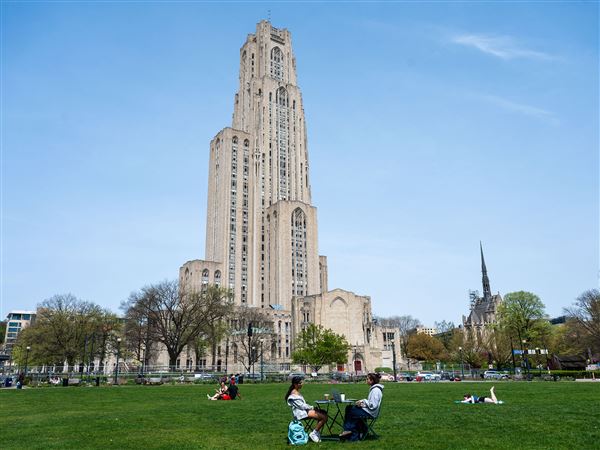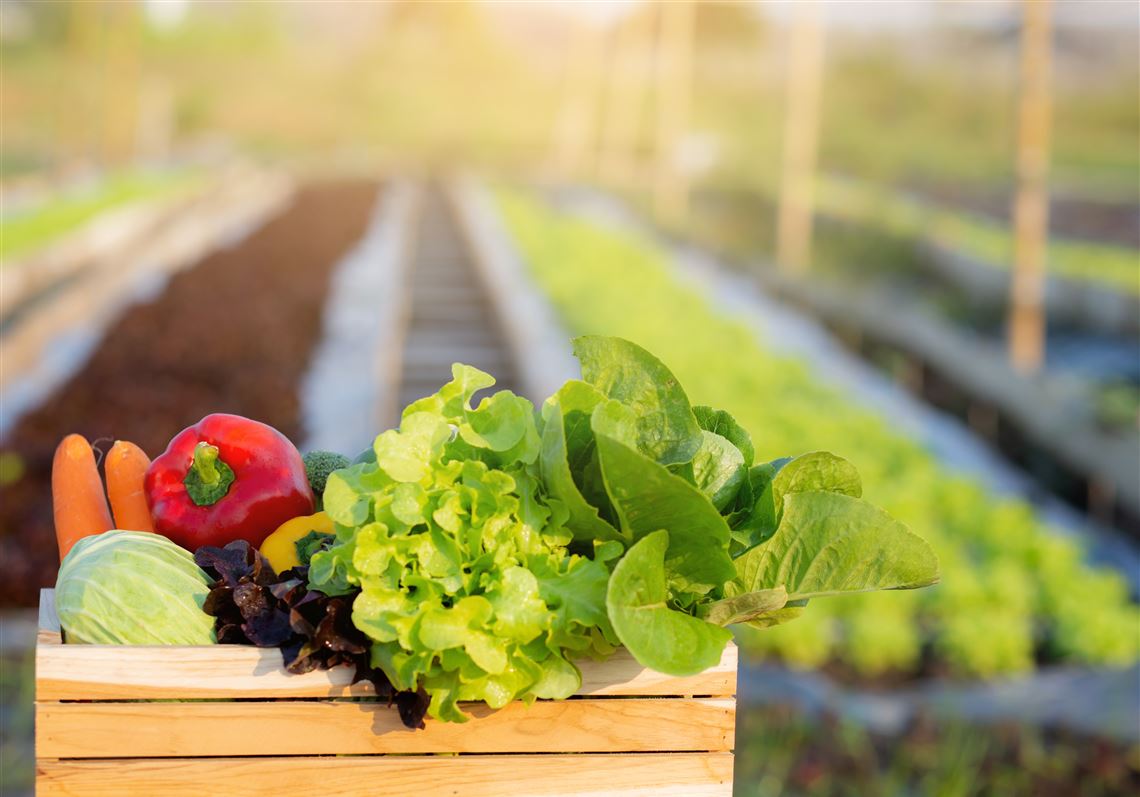Gardening has gained popularity since the beginning of the pandemic, with its scenes of empty store shelves and pervasive cloud of anxiety.
As we now begin a third spring of pandemic life, interest in gardening continues to flourish because many people are drawn to the sense of stability and purpose found in growing their own food. And there’s reason to believe this particular pursuit of happiness isn’t just a passing trend, but a movement that will be sustained.
The gardening boom is real. At Grow Pittsburgh, a nonprofit focused on urban agriculture, we’re once again fielding a surge of requests from residents who want to learn how to grow food for themselves and their communities.
Demand for seeds has been sky high throughout the past two years. Many gardeners who tried ordering from seed catalogs earlier this winter found (as they did last year) longer than usual delays and items out of stock. At Grow Pittsburgh, we’ve grown and sold more plant seedlings in each of the past two years than ever before. And this spring, with our brand new greenhouses at Garden Dreams in Wilkinsburg, we intend to meet the demand by germinating more than 20,000 seedlings for backyard and community gardeners, as well as urban farmers.
Whether you’re raising vegetables at home or in a community plot, the benefits are multiple and rich. Gardening provides an abundance of healthy fresh food. This is especially important in communities that lack a grocery store or other sources of produce because of food apartheid (a more accurate term than “food desert” because it speaks to the social and racial inequalities that have shaped our food system). Gardening can help create food justice.
Gardening helps folks save money on groceries. And if you grow your own, you know your food doesn’t have harmful pesticides on it.
Gardening roots people to the earth and creates a sense of place. This connects neighbors and beautifies backyards and vacant lots throughout our city.
Gardening provides a boost to physical, mental and emotional well-being. As Trina Goggins, an inspiring gardener and one of our tool-lending library patrons, put it, “Gardens feed the body, but gardening feeds the soul.”
Gardens are also scenes of self-sufficiency and collective empowerment. They are among the oldest forms of mutual aid and food justice. Even before the pandemic, one out of five Pittsburghers was deemed “food insecure,” meaning they were unable to consistently access adequate food.
Growers throughout our region have stepped up to help address the increased need for fresh fruits and vegetables at local food pantries and through their own produce distributions. Just last month, 47 people attended our workshop on how to plan community gardens that grow food for donation.
Throughout Greater Pittsburgh, in city neighborhoods like Manchester (where the garden is named “Food For the Soul Community Farm”) and in municipalities like Blawnox, Sharpsburg and Duquesne, folks have banded together to foster connections and grow as much food as possible to share with their families and their neighbors in need.
We’re still in an atmosphere of instability as we learn to live with COVID-19, watch prices rise and witness the war in Ukraine unfold. As uncertainty continues, more people are turning to growing food as a source of solace.
The therapeutic benefits of gardening are becoming better understood. Scientific findings point to increased self-esteem from gardening and improved mood from contact with soil. There’s even a fatty acid in soil-based bacteria that can relieve symptoms of depression and anxiety.
A school principal told me recently how the garden we installed has become a space where students can go when they’re feeling anxious or overwhelmed, a place to step away when they need a break.
This spring, neighbors are establishing new community gardens in Observatory Hill, Turtle Creek, Bellevue and Verona. There are more than 120 community gardens throughout Allegheny County, several of which have been around for over a decade and are still thriving. Four have been protected forever through a community land trust initiative.
Woven into the fabric of the communities, these assets will be around for generations to come. I’ve met countless gardeners who share how they have fond memories of their mom’s heirloom tomatoes or their grandfather’s rhubarb patch. That’s not a trend, it’s culture. Something we cultivate.
Gardening is something almost anyone can do, from toddlers to elders. You can grow herbs in pots along your windowsill or potatoes in buckets on your porch. If you have yard space, you can dig right in and plant your peas today, though you may wish to get your soil tested first: Contamination from heavy metals is one of the biggest barriers to urban gardening in our region. If necessary, you can build raised beds and bring in your own organic soil and compost mix.
There’s no lack of gardening tips and resources online, but the best way might be the tried and true wisdom of talking with your family, learning from neighbors and experimenting.
Like so many life-giving endeavors, gardening rewards patience and attention. Where we find uncertainty in the headlines, we can also witness reassurance in a row of okra standing tall in the morning light. We can feel comfort in the weight and sweetness of a melon on the vine or the swarm of butterflies dancing around the zinnias. We can delight in the child who’s amazed by tasting the sweet burst of a cherry tomato they helped to grow.
When you plant a seed, you express your faith in the future. So sink your hands in the soil. Tuck in the seeds. Feel the sun on your skin. Anticipate the bounty you’ll share with your friends and loved ones.
To learn how to get started, hone your green thumb, or connect with a community garden near you, visit our website: www.growpittsburgh.org.
Ryan Walsh is the Director of Development and Communications at Grow Pittsburgh and author of the poetry collection Reckonings. He lives in North Point Breeze.
First Published: March 20, 2022, 4:00 a.m.
















